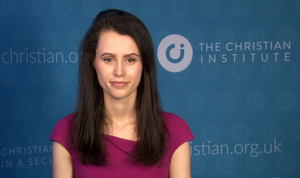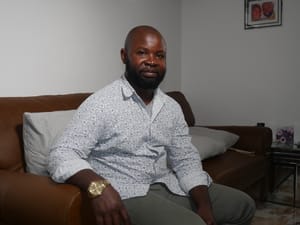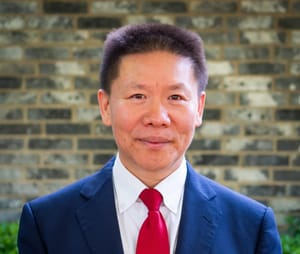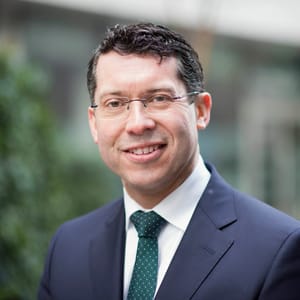Andrew Setchell describes how, in the sovereignty of God, he was converted to Christ through the witness of a heterodox group, but eventually found full gospel truth in the teaching of the Bible.
Ibecame a Christian while at Manchester University through Christians in a group called ‘the Local Church’.
This name comes from the teaching of ‘localism’ – the belief ‘that there is only one true representative of the Body of Christ in any city. This … is said to be the Local Church. The Local Church alone is alleged to be the true representative of the Body of Christ, and all other churches are false’.1
New life lessons
‘The Local Church’ had bases in Manchester and elsewhere in the UK, but its main centres were in Anaheim (USA) and Taipei (Taiwan).
At that time, the movement was led by a man called Witness Lee. My experiences of the Local Church in 1986/87 may not reflect the current beliefs and practices of the movement.
I first came into contact with ‘the Local Church’ through fellow students. One of them befriended me and began to share the gospel with me.
I was attracted by the quality of this man’s life. He invited me to a meal where he and others preached the gospel to me. As a result, I repented and put my trust in the Lord Jesus Christ.
Following conversion and baptism they led me through some ‘New Life Lessons’, which helped me to grow. After some weeks, I began to attend ‘the Local Church’ meetings in Manchester and later on joined them in door-to-door evangelism.
Love and zeal
The people I met in this group had a tremendous love for one another and were genuine, sincere and zealous for the Lord and his Word. All this impressed me as a young believer.
They also expressed their love to me in practical ways, and I developed good friendships.
The main negative experience was that they did not encourage members to read literature written by anyone other than Witness Lee. Even the Bible the group used had footnotes by Witness Lee, which were consulted when the Bible was read and studied.
I left ‘the Local Church’ in the Summer 1987 on the advice of those who were concerned about my involvement with the group. After leaving, I learnt that although some aspects of the teaching and practice of ‘the Local Church’ were biblical, some were not.
In his goodness, the Lord then led me to Bible-believing churches where, over a period of years, the errors I had learnt were corrected.
To illustrate the unbiblical nature of some aspects of ‘the Local Church’, I will focus upon one area of teaching (‘the Trinity’) and one area of practice (‘pray-reading’).
Unbalanced
Through the group, I was taught about the Trinity from the Scriptures and Witness Lee preaching videos. However, because I had no background knowledge, I was not able to discern the error in the group’s teaching.
Upon leaving ‘the Local Church’, I learnt that their view of the Trinity was heretical for ‘the Local Church teaches that the Father, Son and Holy Spirit are all the same Person as well as the same God, and that each is a successive step or stage in the revelation of God to man.’2
In relation to their practice, I was encouraged to ‘pray-read’ the Scriptures. This I attempted to do in my own quiet times.
The following quote from Lee will illustrate pray-reading: ‘Simply pick up the Word and pray-read a few verses in the morning and in the evening. There is no need for you to exercise your mind in order to squeeze out some utterance, and it is unnecessary to think over what you read …
‘It is better for us to close our mind! For example, in pray-reading Galatians 2:20 simply look at the printed page, which says, “I am crucified with Christ”. Then with your eyes upon the Word, and praying from deeply within, say: “Praise the Lord, I am crucified with Christ. Hallelujah! Crucified with Christ. Amen. I am. Oh, Lord, I am crucified. Praise the Lord! Crucified with Christ. Amen! I am crucified with Christ. Hallelujah! Amen!”.’3
The unbiblical nature of all this is clear – such vain repetitions are condemned by our Lord (Matthew 6:7-8). ‘Pray-reading’ leads to the mind being bypassed, which is contrary to the Bible’s exhortation that we are to pray with the understanding (1 Corinthians 14:15).
Importance of doctrine
In conclusion, my experiences highlight the following things.
1. The sovereignty of God in salvation. Even though the Manchester group were unbiblical in some important areas, the Lord used them as an instrument in my salvation. I praise him for those members of the group who God evidently moved to preach the gospel to me.
2. The importance of preaching and teaching biblical doctrine. After I left the movement, the Lord corrected the errors I had imbibed over a period of years. This occurred as I sat under his preached Word and read and studied the Bible for myself.
3. The need to pray for and love those who are in error or hold heretical beliefs. Where we can, with God’s help, we need to help them to come to a biblical understanding of the truth.
References
1. C. Beisner and R. & G. Passantino, The Teachings of Witness Lee and the Local Church, Christian Research Institute, San Juan Capistrano, CA (1978), p.10.
2. IBID., p.2.
3. IBID., p.13.



















